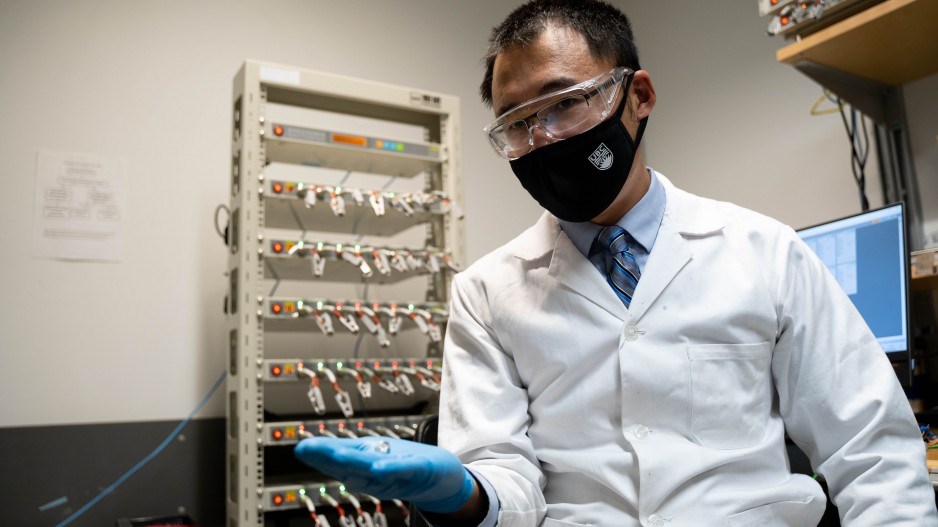Researchers at the Universities of BC and Victoria are trying to build a better battery using two cheap and readily available elements – sulphur and tellurium – as alternatives to the cobalt used in lithium-ion batteries.
Both are byproducts of industrial processes, so they are cheap and plentiful. Sulphur, for example, is a byproduct of oil sands production, and tellurium is a byproduct of copper and lead-zinc smelting.
Thanks to $180,000 in funding through the Clean BC program, the two universities and the Pacific Institute for Climate Solutions (PICS) have developed a three-year research program to use tellurium to solve a problem with lithium-sulphur batteries.
Sulphur is not only cheaper and more readily available than the cobalt used for cathodes in lithium-ion batteries, it also has high energy density.
“Whenever we increase the energy density, in other words we’re trying to reduce the weight or volume of the battery to store the same energy,” said the project’s lead researcher, Jian Liu, an assistant professor at UBC Okaganan campus.
The problem is that sulphur isn’t very conductive. Tellurium has high conductivity, so the three-year research project aims to develop a lithium-sulphur battery that uses tellurium to address the conductivity problem.
Tellurium also has high reaction rates, which would make for quicker charging, Liu said. The result, if researchers succeed, would be a battery that is much cheaper to make, lower in weight and which would charge more quickly.
“If the technology is successful, it can power electric vehicles for longer driving range,” Liu said.
While the electric vehicles would likely be the biggest market for lithium-sulphur batteries, Liu said they could also be used for aviation and large-scale energy storage.
The research is still in its early stages, with only a small proto-type yet to be developed. Ultimately, should the research succeed in producing a workable lithium-sulphur battery, Liu said he would hope to see the batteries manufactured in B.C.




